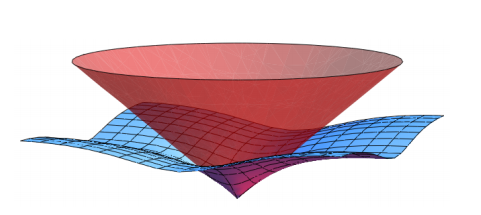Best of 2012: The Measurement That Would Reveal The Universe As A Computer Simulation
In October, theorists calculated that if the cosmos is a numerical simulation, there ought to be clues in the spectrum of high energy cosmic rays
One of modern physics’ most cherished ideas is quantum chromodynamics, the theory that describes the strong nuclear force, how it binds quarks and gluons into protons and neutrons, how these form nuclei that themselves interact. This is the universe at its most fundamental.
So an interesting pursuit is to simulate quantum chromodynamics on a computer to see what kind of complexity arises. The promise is that simulating physics on such a fundamental level is more or less equivalent to simulating the universe itself.
There are one or two challenges of course. The physics is mind-bogglingly complex and operates on a vanishingly small scale. So even using the world’s most powerful supercomputers, physicists have only managed to simulate tiny corners of the cosmos just a few femtometers across. (A femtometer is 10^-15 metres.)
This story is only available to subscribers.
Don’t settle for half the story.
Get paywall-free access to technology news for the here and now.
Subscribe now
Already a subscriber?
Sign in
You’ve read all your free stories.
MIT Technology Review provides an
intelligent and independent filter for the
flood of information about technology.
Subscribe now
Already a subscriber?
Sign in
That may not sound like much but the significant point is that the simulation is essentially indistinguishable from the real thing (at least as far as we understand it).
It’s not hard to imagine that Moore’s Law-type progress will allow physicists to simulate significantly larger regions of space. A region just a few micrometres across could encapsulate the entire workings of a human cell.
Again, the behaviour of this human cell would be indistinguishable from the real thing.
It’s this kind of thinking that forces physicists to consider the possibility that our entire cosmos could be running on a vastly powerful computer. If so, is there any way we could ever know?
Today, we get an answer of sorts from Silas Beane, at the University of Bonn in Germany, and a few pals. They say there is a way to see evidence that we are being simulated, at least in certain scenarios.
Continued…
